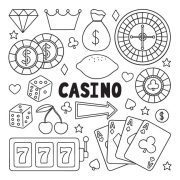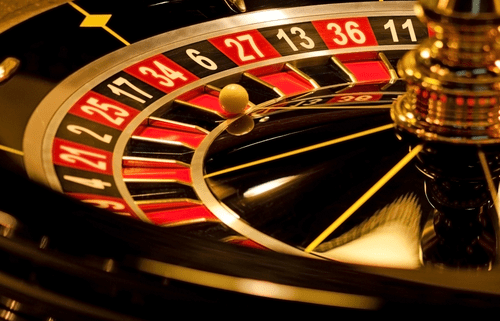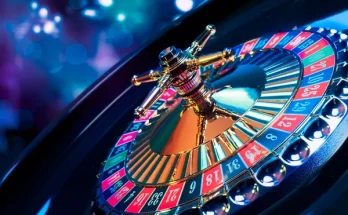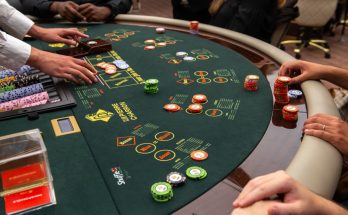When Losing Feels Like Winning
Every casino player knows the sting of losing – but even more haunting is the sensation of “almost winning.” The slot reels show two jackpot symbols and one just above the line. The roulette ball lands next to your number. The blackjack hand is one card away from perfection. These near-misses feel electrifying, almost celebratory, despite being losses.
On platforms like 5gringos casino, this phenomenon becomes central to the experience. Players return not only for wins but for the thrill of being close. The paradox is that “almost winning” can be more dangerous than losing outright, because it stimulates the brain in ways that deepen engagement, prolong play, and blur judgment.
The Science of the Near-Miss
Dopamine and the Illusion of Reward
Neuroscience studies show that near-misses activate the same brain regions as actual wins. Dopamine is released not only when winning but also when the outcome almost aligns with a win. The body reacts as though success is imminent, encouraging the player to try again.
Conditioning Through Frustration
Psychologists compare the near-miss to partial reinforcement in animal studies. Just as pigeons peck more persistently when occasionally rewarded, gamblers spin more after a near-miss because it signals that the reward is “within reach.”
Why Near-Misses Feel Personal
The Projection of Control
Players often interpret near-misses as signals of personal progress: “I’m getting closer.” This illusion of skill or control transforms randomness into what feels like a personal journey.
Narrative Thinking
Humans crave stories. A near-miss feels like a plot twist, a step on the hero’s journey to eventual victory. Losing ends the story; near-misses keep it alive.
How Casinos Engineer Near-Misses
Slot Machine Design
Modern slot machines and online reels deliberately program near-misses. By adjusting symbol frequency and reel positions, designers ensure players regularly see combinations that just barely fail.
Roulette and Visual Closeness
Even in table games, casinos emphasize the “just missed” experience. Seeing the ball land adjacent to your chosen number is far more psychologically gripping than if it had landed across the wheel.
Online Personalization
Casino platforms often gamify near-misses with sound effects, flashing lights, or bonus teases – turning failure into emotional engagement.
Why Near-Misses Are More Dangerous Than Losses
Losses End Play
A clear loss often signals time to stop. There is disappointment, but also closure.
Near-Misses Extend Play
A near-miss, however, whispers “you’re close”. Instead of closure, it sparks renewed effort. Players continue, convinced the win is around the corner.
The Emotional Paradox of Almost Winning
Pain Mixed with Hope
Near-misses are painful, but the pain is softened by hope. This emotional cocktail is addictive: disappointment fuels determination, and determination fuels more play.
The Self-Justification Loop
Players rationalize: “If I was that close, stopping now would waste the momentum.” Each near-miss becomes evidence that continuing is logical.
Case Studies of Near-Miss Obsession
- The Slot Devotee: Describes two jackpot symbols appearing as “the machine teasing me.” Plays longer than intended chasing the alignment.
- The Roulette Regular: Claims the ball “likes” certain areas of the wheel, interpreting near-hits as patterns.
- The Online Player: At casino, admits feeling more excited after a near-miss than an actual small win.
Generational Responses
Millennials – The Story Seekers
Millennials often interpret near-misses narratively, framing them as “part of the journey.” This fits with their preference for experience-driven gambling.
Gen Z – The Gamified Mindset
Gen Z, raised on video games, treat near-misses like “levels.” To them, each close call feels like progress in a gamified system, making the effect especially potent.
The Ethics of Near-Miss Engineering
Manipulation or Entertainment?
Critics argue near-miss design manipulates psychology. Proponents counter that it is part of the entertainment structure. The debate mirrors larger questions about responsibility in gambling design.
Transparency and Control
Some casinos introduce tools to help players manage the effect: reality checks, time limits, and reminders. But these often clash with the very design that makes gambling compelling.
Expert Insights – The Almost-Win as a Psychological Trap
Behavioral economists note that near-misses blur rational decision-making. Instead of processing them as losses, players reinterpret them as “encouragement.” This distortion increases risk-taking, making the near-miss more hazardous than defeat.
Conclusion – The Dangerous Beauty of Being Close
Near-misses are the poetry of casinos: beautiful, frustrating, and endlessly compelling. Platforms know that players crave not only wins but also the drama of being so close.
But this beauty hides danger. The near-miss keeps gamblers engaged long after clear losses would have sent them home. It transforms failure into motivation, making it one of the most powerful – and risky – psychological engines in the gambling world.
In the end, casinos remind us of a paradox: losing may stop us, but almost winning keeps us spinning.




